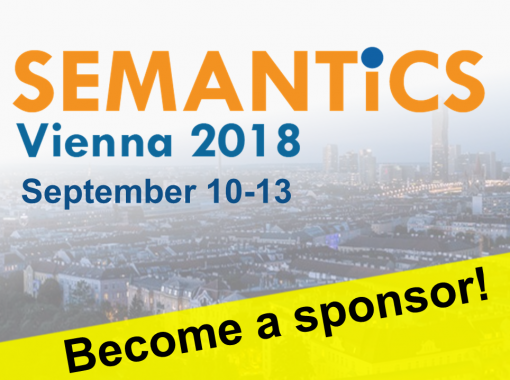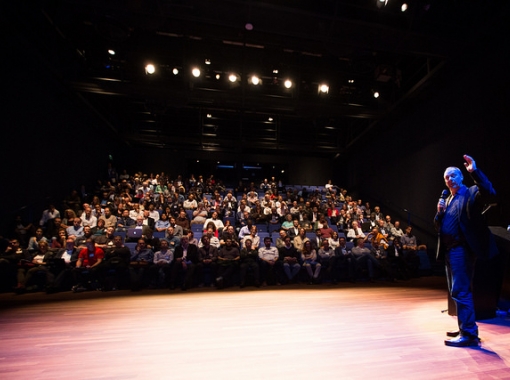
In the following weeks, we will introduce speakers of the SEMANTiCS conference and explore more about their fields of expertise. We start the series with Alan Morrison, who is a senior research fellow at PWC.
The aspect I enjoy the most about this conference is the fact that it is tied to industry and you can meet so many different people that work in different areas and that wouldn’t happen normally at an academic conference… it’s the fact that the use cases people talk about and have to do with are very real.
SEMANTiCS for me means being able to learn about our European Partners here. Me getting to know them (…) is very important: It’s the socialization and network which is very important to us – to know the people we’re working with.
The level of conversation, the level of expectation of the participants and the level of sophistication of what they’re presenting is really astounding.
This is the definite peak of what you can get with regards to semantics if you look at the keynote speakers, if you look at the topics that are placed (…) it is very important to have real use cases, real brands, real issues you can relate to to get deeper into the topic

Sponsorship packages for SEMANTiCS 2018 are available! Learn more about the benefits of becoming a sponsor at the cross-section of research and business.
The SEMANTiCS Conference is a really great place to come and look for inspiration, implementation, partners, for ideas and for business models.

Reaching out to new industries, vendors, and establishing good relations to neighbouring communities were the reasons for bringing SEMANTiCS conference series to Amsterdam. 370 attendees shared their experiences about emerging technologies and use case scenarios.

This SEMANTiCS gathered 370 experts, practitioners and customers of Semantic Technologies. Dena Tahvildari got some of them in front of her camera. The Amsterdam conference as a kaleidoscope of voices

Keynote speakers Aaron Bradley and Eamonn Glass of EA Games see the development of enterprise knowledge graphs, where companies are starting to reap the benefits of linked data technologies by creating standards-based knowledge models of their domains and the more mainstream adoption of semantic web capabilities as important trends in Linked data.
Pages